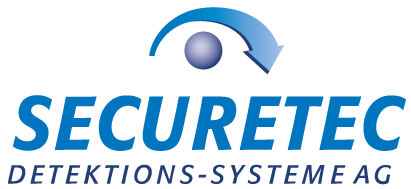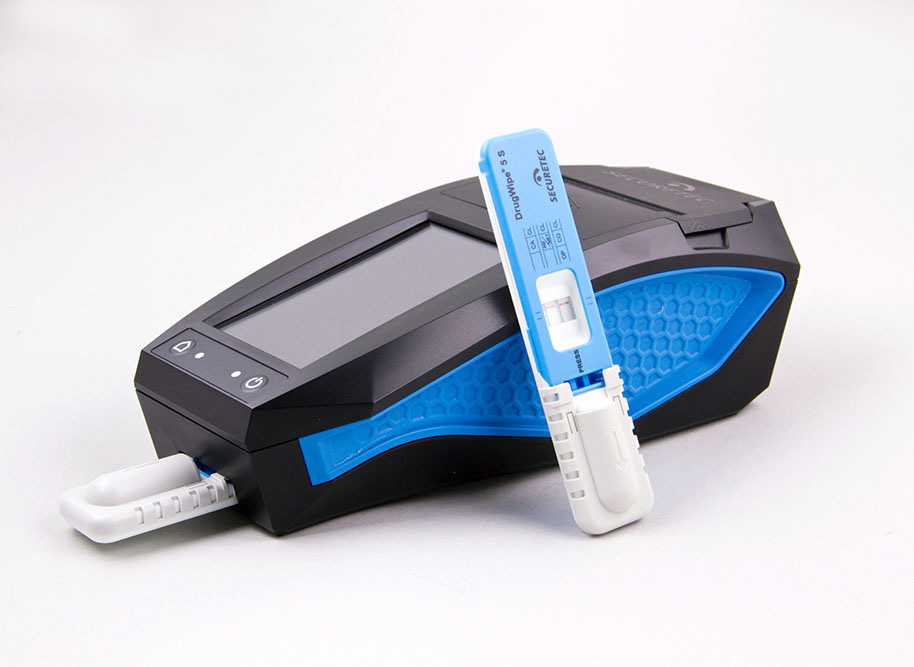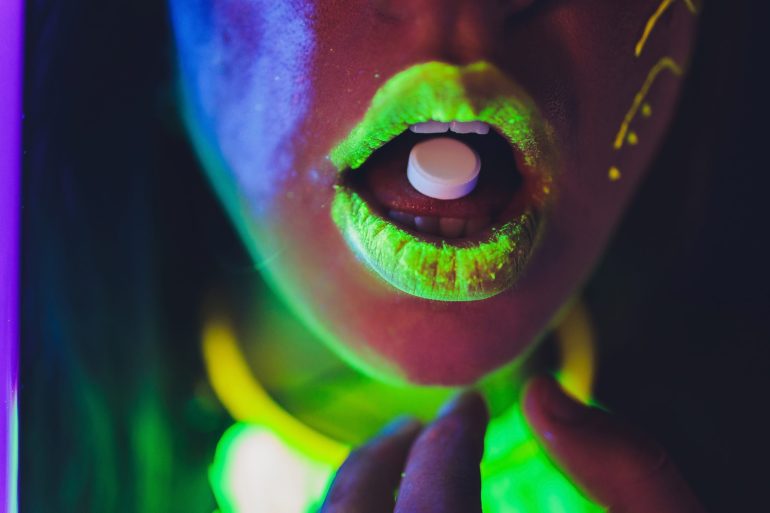
EDM – pulsating ecstasy in the roaring 21st century
Electronic dance music (EDM) is one of the most dynamic and popular music genres of our time – originating from the electronic sounds of the 1980s and now played at huge festivals worldwide. Its subgenres include techno, house, trance, dubstep and psytrance. All of these have the shared goal of getting the body moving and transporting the senses into trance-like states.1
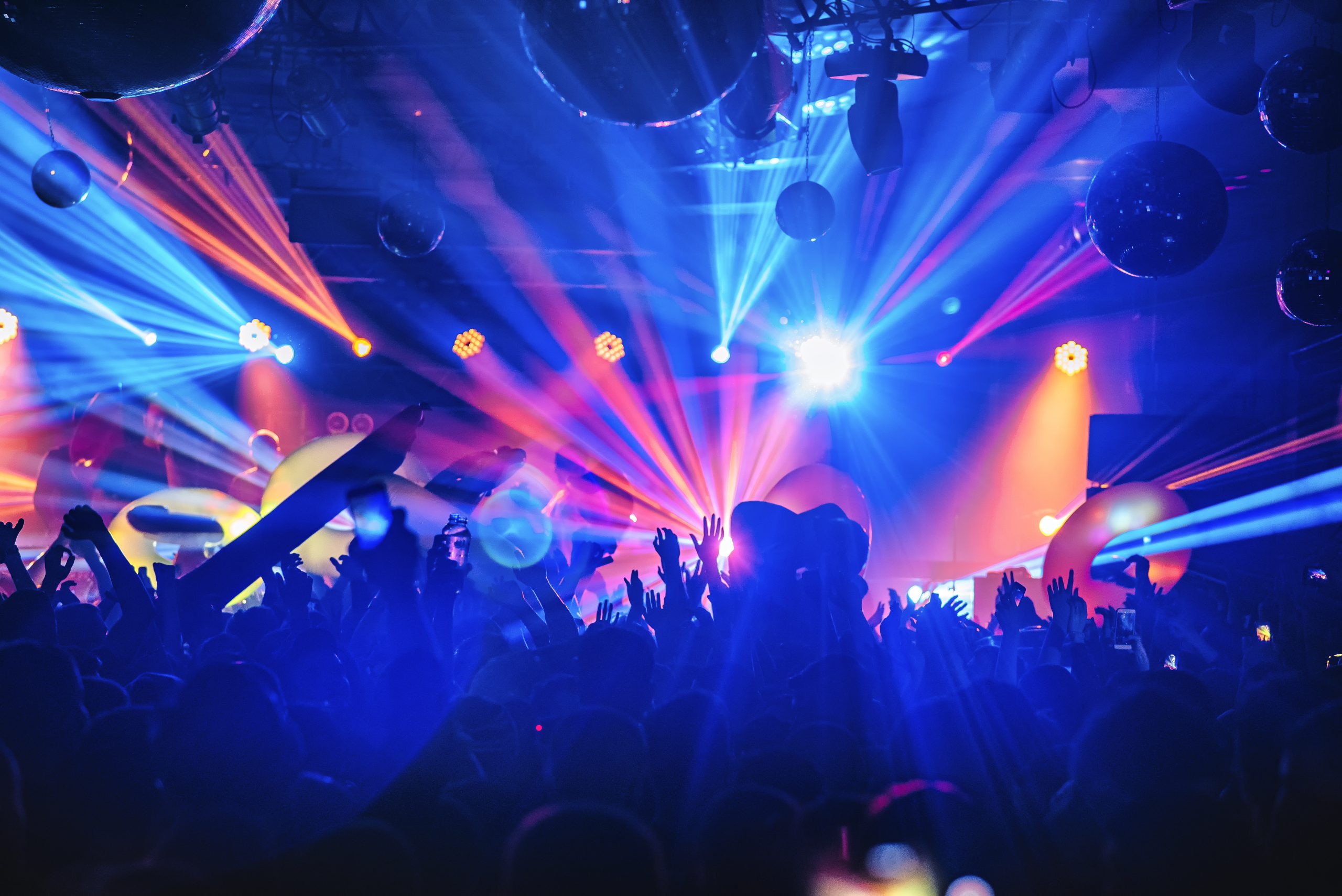
©: glazok– stock.adobe.com
Subgenres: techno, house, trance & co.
Techno is characterised by driving, repetitive beats and minimalist sounds, and has been strongly influenced by the German band Kraftwerk. House is loved for its funky, warm grooves and distinct soul influences. Trance is based on melodic, atmospheric sounds that create emotional soundscapes. Dubstep is known for its powerful, bassheavy drops and is particularly popular in the urban scene. And psytrance takes listeners into colourful, ever-changing worlds of sound with deep basslines.
Ecstasy at the heart of both the party & research
The idea of EDM without ecstasy is barely imaginable as there are few drugs that have been so intrinsically linked to this scene. Since the 1980s, MDMA, also known as ecstasy or molly, has established itself as the heartbeat of the rave (EDM dance party) culture, transporting people into states of euphoria with extreme dance energy and feelings of openness and connectedness towards others. MDMA heightens social bonds, makes music feel more intense and promotes emotional closeness. For many people, a rave is a kind of collective trance, where music, light and bodies all fuse together. But the downside is real: overdoses, dehydration and risky polysubstance use – especially in conjunction with alcohol – are far from rare.2 Almost half of all negative drug experiences at EDM events can be attributed to polydrug use. Many festivals are therefore using drug checking stations and educational initiatives to minimise risks. One such example is the Berlin drug-checking project that has been anonymously testing pills and powders since 2023. Almost half of the samples tested between June 2023 and spring 2025 contained impurities or were abnormally strong – in many cases, ecstasy. Striking results frequently led to drugs not being taken, which shows how well prevention works.³
Psytrance: modern-day hippies
Psytrance is a relaxed corner of the EDM world. With its roots in Goa’s hippy movement, LSD and magic mushrooms dominate this genre, which is less about turbo-charged ecstasy and more about a spiritual journey. Most events are held in ritual community settings.4 By comparison, mainstream EDM is often a high-speed trip with higher doses and risky polysubstance use.5 As such, even today’s hippies are generally well-behaved.
From Woodstock to the Ozora Festival:
In 1969, White Rabbit rang out as an anthem for love, peace and LSD. Today, it lives on in psytrance versions as an expression of the ongoing hippy era.
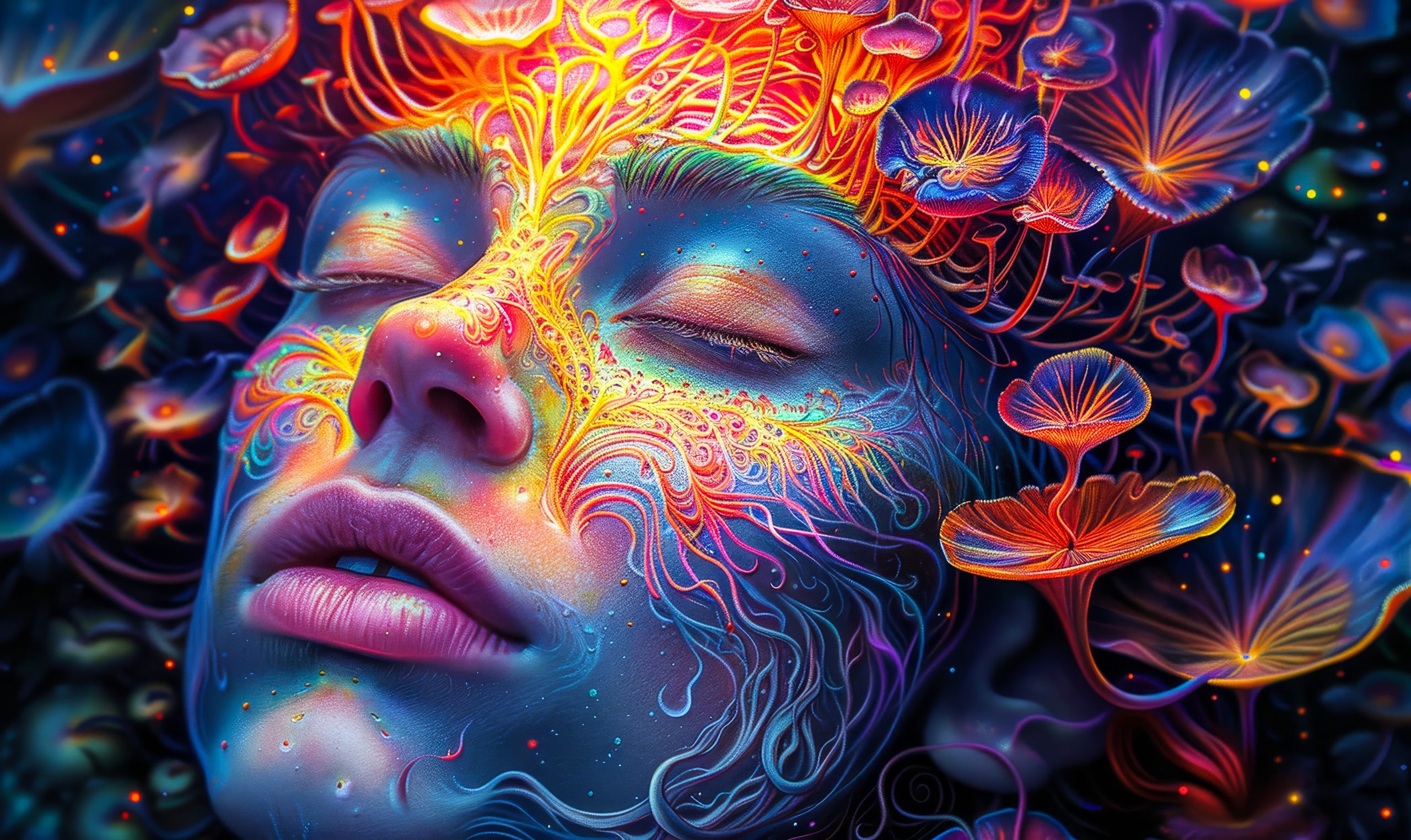
©: Bartek – stock.adobe.com
Drugs in EDM songs – beats and images
From subtle to striking: in techno and house, allusions to ecstasy and co. flash up more or less hidden, for example in DJ Koze’s ‘XTC’ or The Horrorist’s ‘One Night in New York City’. Trance prefers to involve metaphors of ‘other worlds’, which represent both raves and trips. Psytrance delves into atmospheric-spiritual images of synaesthesia, aliens, mushrooms and mandalas (see illustration). The bottom line is that the depiction of drugs within the scene fluctuates between euphoric transfiguration and reflective warning.
Music and intoxication – boundless diversity
No music genre has a monopoly: whether techno, rock or hip-hop, the link between certain drugs and certain styles of music is just a kind of guideline. In today’s music world, diversity rules the night! All genres have one thing in common: it is the music that attracts people to music events, not the drugs.6

DrugWipe 6 S – 6 drug groups in 5 minutes
Just ask – we’re always happy to help.
References:
1: Newson, M. et al. (2021), „I Get High With a Little Help From My Friends“[ …], Frontiers in Psychology, Vol. 12; 2: O. V. (2019), Akute Probleme durch Drogenkonsum beim Feiern, drugcom.de, 20.8.25; 3: O. V. (2025), Berliner Drug-Checking-Projekt zeigt Wirkung, PM SenWGP, berlin.de, 20.08.25; 4: Küchler, J. (2014), Diplomarbeit „Die spirituelle Seite der Goa-Psy-Trance Szene“, Universität Wien; 5: Schäfer T. et al. (2022), The Eff ects of Dancing to Electronic Music […], European Journal of Psychology Open, Volume 81; 6: Ozora Festival Offi cial Video, 18.06.2020, One Day At Home vol. 2 (PART 3), youtube.com; 7: O. V. (2011), Die wahre Geschichte über Ecstasy (MDMA), drugcom.de, 20.8.25
Images provided by:
Securetec Detektions-Systeme AG; stock.adobe.com: Евгений Вершинин, glazok, Bartekfreelanceartist
